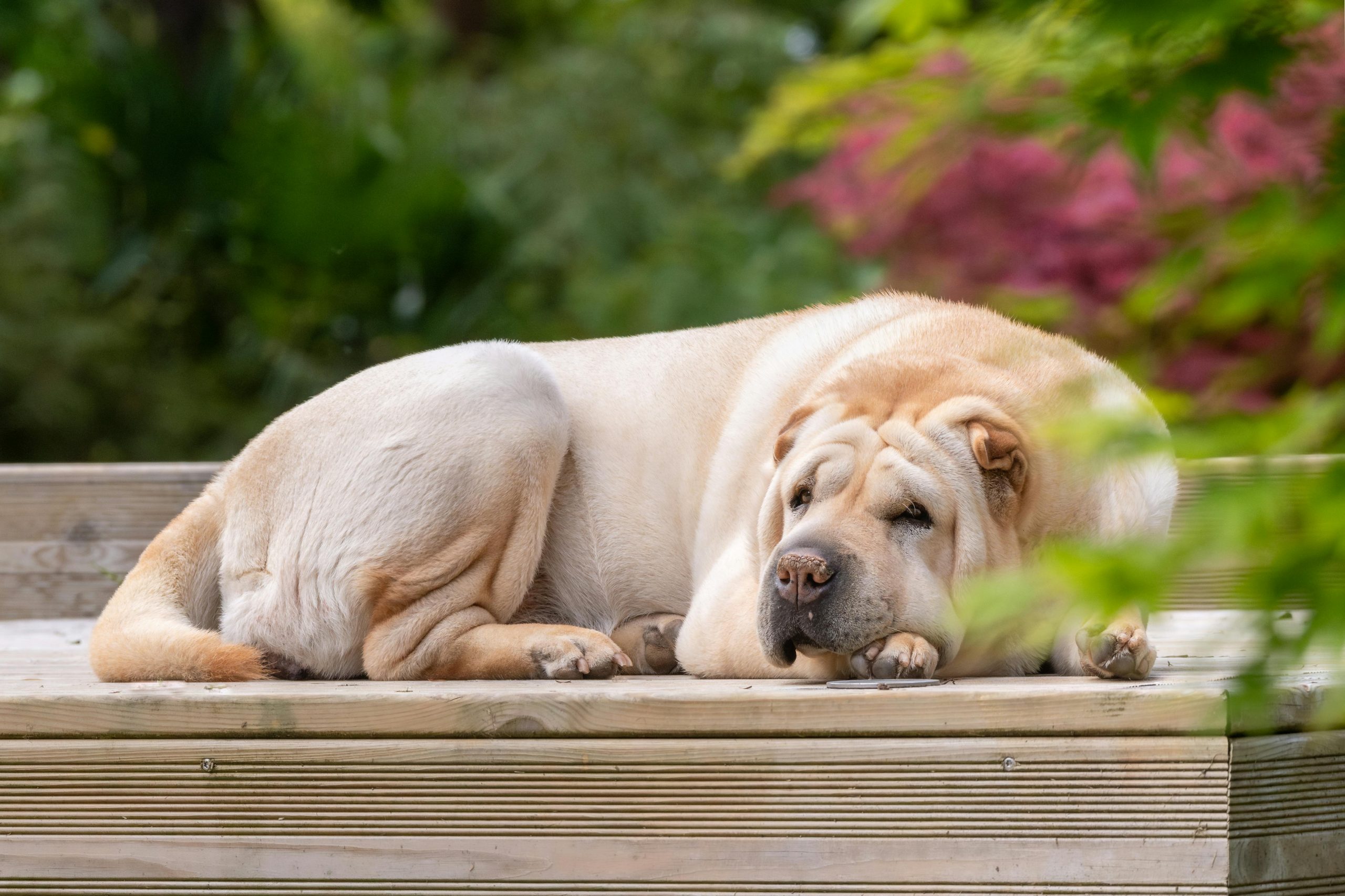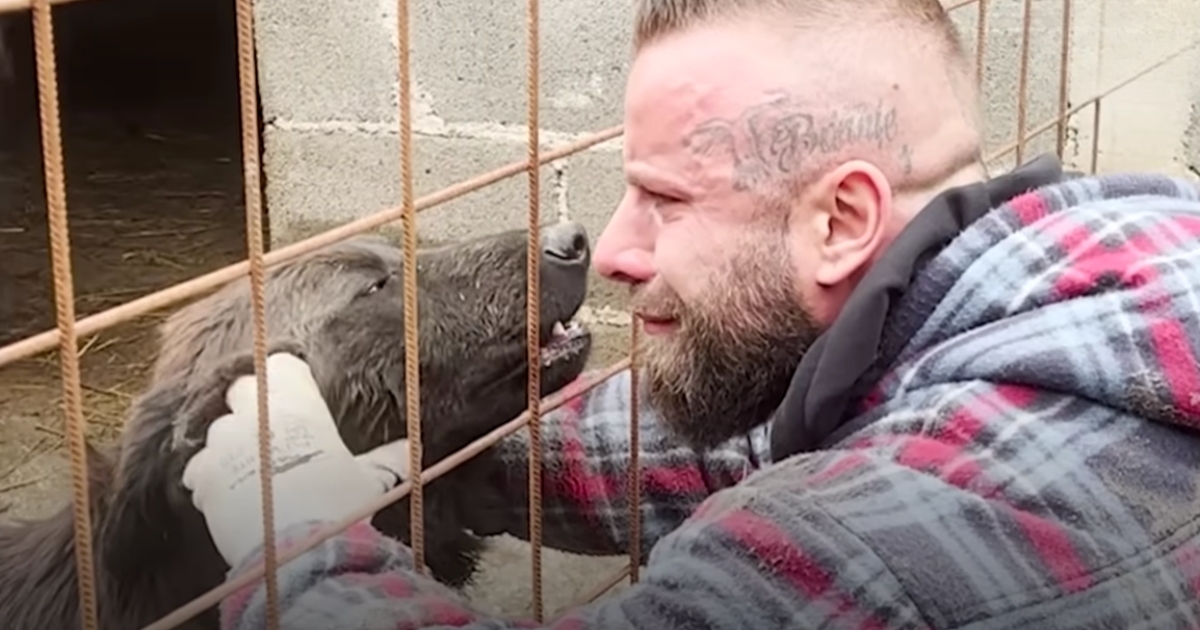
The Shar Pei, with its distinctive deep wrinkles and blue-black tongue, is a breed that hails from ancient China, where it was originally bred for hunting, herding, and guarding. This unique-looking breed is known for its loyalty, independence, and sometimes aloof demeanor, making it a fascinating companion for those who appreciate its characteristics. The lifespan of a Shar Pei typically ranges from 8 to 12 years, a figure that reflects both the breed’s robustness and the various health challenges it may face. Owners of Shar Peis should be aware of these health issues, as early detection and management can significantly impact their pet’s quality of life and longevity. This article delves into what owners can expect regarding the lifespan of a Shar Pei, highlighting common health challenges and offering insights into how to manage them to ensure a long, fulfilling life for these cherished companions.
Understanding the Shar Pei’s Lifespan
The Shar Pei’s lifespan of 8 to 12 years places it within the average range for medium-sized breeds. Genetic factors, lifestyle, and the care their owners provide are crucial in determining their longevity. Like any breed, the Shar Pei can enjoy life towards the upper end of this range with proper care, including a healthy diet, regular exercise, and routine veterinary check-ups.
Common Health Challenges
Skin Conditions
The Shar Pei’s unique skin folds can be a breeding ground for bacteria and yeast, leading to skin infections known as pyoderma. Regular cleaning and monitoring of their skin folds are essential for preventing infections. Choosing a diet that promotes skin health can also be beneficial.
Familial Shar Pei Fever
This breed-specific condition is characterized by episodes of fever and swelling, primarily affecting Shar Peis. While there is no cure, symptoms can often be managed with medication and monitoring under the guidance of a veterinarian.
Amyloidosis
Shar Peis are predisposed to this severe condition, where abnormal protein deposits lead to organ dysfunction, most commonly affecting the kidneys and liver. Early detection through regular blood work and urine analysis is critical to managing this condition.
Hip Dysplasia
Like many medium to large breeds, Shar Peis can be susceptible to hip dysplasia, a genetic condition leading to arthritis and mobility issues. Weight management, appropriate exercise, and, in some cases, surgical interventions can help manage this condition.
Entropion
This painful eye condition, where the eyelid rolls inward, causing the eyelashes to rub against the cornea, is common in Shar Peis due to its distinctive facial structure. Surgical correction is often required to prevent damage to the eye and ensure the dog’s comfort.
Diet and Nutrition
A balanced diet tailored to the Shar Pei’s needs is fundamental to their overall health and longevity. High-quality dog food that supports joint health, skin health, and appropriate weight management can mitigate some of the breed’s common health issues.
Exercise and Weight Management
Regular, moderate exercise helps maintain a healthy weight, which is crucial for preventing stress on Shar Pei’s joints and reducing the risk of heart disease. Exercise also provides mental stimulation, keeping the Shar Pei engaged and happy.
Preventive Health Care
Routine veterinary check-ups are essential for early detection and management of Shar Pei’s health challenges. Vaccinations, parasite control, and dental care are key components of a comprehensive health care plan.
Genetic Testing and Responsible Breeding
Prospective Shar Pei owners should seek out reputable breeders who utilize genetic testing to reduce the incidence of breed-specific health issues. Understanding the genetic health of the parents can provide insight into potential future health challenges.
Socialization and Mental Health
Socialization from a young age is crucial for the Shar Pei, helping to prevent behavioral issues and ensuring they grow into well-adjusted adults. Mental health is closely tied to physical health, and a well-socialized Shar Pei is likely to enjoy a longer, happier life.
Environmental Factors
Creating a safe, comfortable living environment for the Shar Pei can positively impact their health and well-being. Protection from extreme temperatures, access to clean water and shelter, and a stress-free home can all contribute to a longer lifespan.
Senior Care for Shar Peis
As Shar Pei’s ages, their care needs may change. Adjustments to their diet, exercise regimen, and more frequent veterinary check-ups can help manage age-related health issues, ensuring their golden years are comfortable and fulfilling.
The Role of Love and Companionship
The bond between a Shar Pei and its owner can profoundly affect the dog’s health and well-being. Providing love, attention, and companionship is crucial in ensuring a long, happy life for your Shar Pei.
Caring for a Shar Pei requires understanding the breed’s specific needs and potential health challenges. With the proper care, attention to health concerns, and a loving home, your Shar Pei can enjoy a whole and vibrant life by your side. Owners committed to their Shar Pei’s well-being can make a significant difference in the quality and length of their pet’s life, ensuring that the years spent together are as rewarding as possible.
How Can I Extend the Lifespan of My Shar Pei?
The Shar Pei is a breed that stands out not only for its distinctive wrinkles but also for its unique health needs. Originating from China, this breed is known for its loyalty and affection towards its family. The Shar Pei has a lifespan of approximately 8 to 12 years, which can be extended with attentive care and understanding the breed’s specific health challenges.
Regular Health Check-ups
Given its predisposition to specific health conditions, routine veterinary visits are crucial for the Shar Pei. Early detection and management of health issues can significantly impact Shar Pei’s quality of life and longevity. Annual check-ups, blood work, and screenings for hip dysplasia and other genetic conditions are essential to their health care.
Managing Skin and Coat Health
The Shar Pei’s skin is unique, with deep folds and wrinkles that can trap moisture and debris, leading to skin infections. Regular grooming, including gently cleaning their wrinkles with a damp cloth and drying them thoroughly, can prevent these issues. A high-quality diet rich in omega-3 fatty acids can also support skin and coat health.
Preventing Familial Shar Pei Fever (FSF)
Familial Shar Pei Fever is a hereditary condition unique to the breed, characterized by episodes of fever and swelling. While there is no cure for FSF, managing symptoms through medication and, monitoring and keeping your vet informed about any episodes can help manage this condition and prevent complications such as amyloidosis.
Nutritional Considerations
It is vital to feed your Shar Pei a balanced diet tailored to its specific needs. Avoid overfeeding to prevent obesity, which can exacerbate health issues like joint problems. Consulting with a veterinarian to determine the best diet plan can ensure your Shar Pei receives all the necessary nutrients for a healthy life.
Exercise and Weight Management
Shar Peis are not the most active breed, but they still require regular exercise to maintain a healthy weight and promote overall well-being. Moderate daily walks and playtime can help keep them fit, prevent obesity, and stimulate their mind.
Addressing Joint Health Early
Due to their susceptibility to conditions like hip dysplasia, paying attention to your Shar Pei’s joint health from an early age is essential. Supplements such as glucosamine and chondroitin can support joint health, but consult your vet for recommendations tailored to your dog’s specific needs.
Eye Care
Shar Peis are prone to various eye conditions, including entropion, where the eyelids roll inward. Regular eye checks can catch these issues early, and surgical correction may be necessary to prevent discomfort and more severe complications.
Dental Care
Dental health is often overlooked but is crucial for overall health. Regular brushing, dental treats, and professional cleanings can prevent periodontal disease, affecting Shar Pei’s health and lifespan.
Mental Stimulation and Socialization
Keeping your Shar Pei mentally stimulated with toys, puzzles, and training can prevent boredom and destructive behaviors. Socialization is also crucial to developing a well-rounded and happy dog, reducing stress and anxiety that can impact health.
Creating a Comfortable Environment
Ensuring your Shar Pei has a comfortable, stress-free living environment can positively affect its health. This includes providing a cozy place to rest, access to clean water, and a safe space to exercise and play.
Monitoring for Signs of Aging
As your Shar Pei ages, its needs will change. Being vigilant for signs of aging and adjusting care can help manage age-related conditions. This includes softer diets for dental health, lower-impact exercises for joint care, and more frequent veterinary visits for health monitoring.
The Importance of a Strong Bond
The emotional well-being of your Shar Pei is just as important as its physical health. A strong bond between you and your Shar Pei, built through time spent together, affection, and understanding, can enrich and extend its lifespan.
By addressing Shar Pei’s unique health needs, providing preventive care, and ensuring a nurturing environment, you can help extend the lifespan of your cherished companion. Committing to understanding and meeting these needs can lead to many rewarding years with your Shar Pei.
Frequently Asked Questions About The Lifespans of Shar Peis
1. What is the average lifespan of a Shar Pei?
The average lifespan of a Shar Pei is typically between 8 to 12 years. This range can vary due to several factors, including genetics, the level of care, and the presence of health issues specific to the breed. To maximize their lifespan, Shar Peis require attentive care that includes a proper diet, regular exercise, and routine veterinary check-ups. Ensuring they live in a stress-free environment and addressing any health concerns promptly can also significantly contribute to achieving their lifespan potential.
2. How can I extend my Shar Pei’s lifespan?
Extending the lifespan of your Shar Pei involves a comprehensive approach to their health and well-being. Prioritize regular veterinary visits for early detection and management of breed-specific health conditions such as skin issues, familial Shar Pei fever, and hip dysplasia. A balanced diet tailored to their specific needs, regular exercise to maintain a healthy weight, and diligent care of their unique skin and coat can also play crucial roles. Additionally, mental stimulation and a loving, stress-free environment contribute to their overall longevity.
3. Are Shar Peis prone to any particular health problems?
Shar Peis are prone to several health issues that could potentially shorten their lifespan if not properly managed. These include skin infections due to their unique wrinkles, familial Shar Pei fever (a breed-specific fever syndrome), hip dysplasia, and eye conditions such as entropion. They may also be at risk for amyloidosis, a condition affecting the kidneys. Preventive care, including regular check-ups, proper nutrition, and maintaining a clean skin fold environment, is essential for mitigating these risks.
4. Does the Shar Pei’s diet affect its lifespan?
Yes, the diet has a significant impact on the lifespan of a Shar Pei. Feeding them a balanced diet rich in nutrients that support skin health, joint health, and overall wellness is crucial. Avoid foods that may trigger allergies or skin issues, which are common in this breed. Additionally, maintaining an appropriate weight can help prevent the onset of diseases associated with obesity, such as diabetes and heart disease, ultimately contributing to a longer, healthier life.
5. How much exercise does a Shar Pei need?
Shar Peis require moderate exercise to maintain their health and extend their lifespan. Daily walks and playtime can help manage their weight, improve cardiovascular health, and reduce the risk of behavioral problems. However, it’s important to monitor their activity, especially in hot weather, as they can be prone to overheating due to their thick skin. Tailoring the exercise to the individual dog’s health status and energy level is also crucial for preventing injuries and ensuring they remain active and healthy throughout their lives.
6. Can regular veterinary care extend the lifespan of my Shar Pei?
Regular veterinary care is essential for extending the lifespan of a Shar Pei. Routine check-ups can help catch and address health issues early before they become more serious. Vaccinations, parasite control, and dental care are also vital components of their overall health strategy. Discussing breed-specific concerns with your vet and following a personalized health care plan can significantly impact your Shar Pei’s quality of life and longevity.
7. What are the signs of aging in Shar Peis?
Signs of aging in Shar Peis include decreased activity levels, increased sleeping, graying fur, weight changes, and the development or worsening of health conditions such as arthritis or vision loss. You may also notice a decline in cognitive function, manifesting as confusion or disorientation. Addressing these age-related changes with appropriate veterinary care, diet adjustments, and modifications to their living environment can help manage the effects of aging.
8. Is it common for Shar Peis to have skin problems?
Yes, it is quite common for Shar Peis to experience skin problems due to their distinctive wrinkles and folds. These areas can trap moisture and debris, leading to bacterial or yeast infections. Regular cleaning and drying of their skin folds, along with a diet that supports skin health, can help prevent these issues. If skin problems do arise, prompt veterinary treatment is crucial to prevent complications and discomfort.
9. How does obesity affect a Shar Pei’s lifespan?
Obesity can significantly shorten a Shar Pei’s lifespan by predisposing them to a range of health issues, including diabetes, heart disease, and joint problems. Excess weight can also exacerbate skin problems and increase the risk of heatstroke. Maintaining a healthy weight through a balanced diet and regular exercise is crucial for preventing obesity and its associated health risks, thereby potentially extending their lifespan.
10. What preventive measures can I take to ensure my Shar Pei lives longer?
Preventive measures to ensure a longer life for your Shar Pei include regular veterinary check-ups, a balanced diet, consistent exercise, and diligent skin care. Additionally, keeping them up-to-date on vaccinations and parasite control helps prevent diseases. Monitoring for signs of common breed-specific health issues and addressing any concerns promptly can also make a significant difference in their overall health and longevity.
11. How does mental health impact the lifespan of a Shar Pei?
Mental health significantly impacts the lifespan of a Shar Pei. Like all dogs, they require mental stimulation to prevent boredom and stress, which can lead to behavioral and physical health issues. Providing interactive toys, regular playtime, and training can help keep their minds active. A positive, loving environment and socialization can also support their mental well-being, contributing to a longer, happier life.
12. Can early detection of health issues extend my Shar Pei’s life?
Early detection of health issues can greatly extend your Shar Pei’s life by allowing for timely intervention and treatment. Regular veterinary screenings for common breed-specific conditions, such as familial Shar Pei fever and hip dysplasia, are essential. Being observant of any changes in your dog’s behavior or physical condition and seeking veterinary advice promptly can lead to early diagnosis and a better prognosis.
13. How important is socialization for a Shar Pei’s lifespan?
Socialization is very important for a Shar Pei’s lifespan as it can prevent the development of fear-based behaviors and aggression, which can impact their overall well-being. Well-socialized Shar Peis are generally more confident and less stressed, contributing to better mental and physical health. Introducing your Shar Pei to various people, animals, and environments from a young age in a controlled and positive manner can enhance their social skills and quality of life.
14. Does spaying or neutering my Shar Pei have an impact on its lifespan?
Spaying or neutering can have a positive impact on the lifespan of a Shar Pei by reducing the risk of certain cancers and diseases. For females, spaying helps prevent uterine infections and breast cancer, while neutering males can reduce the risk of testicular cancer and prostate problems. These procedures can also decrease the likelihood of roaming, which can reduce the risk of accidents or injuries.
15. What are the best ways to care for a senior Shar Pei?
Caring for a senior Shar Pei involves adjusting their diet to meet their changing nutritional needs, providing gentle, appropriate exercise to maintain mobility, and managing any age-related health issues with veterinary care. Regular check-ups become increasingly important to monitor their health status. Additionally, making their living environment as comfortable as possible, with easy access to food, water, and their favorite resting spots, can help manage the effects of aging and ensure their well-being in their golden years.






